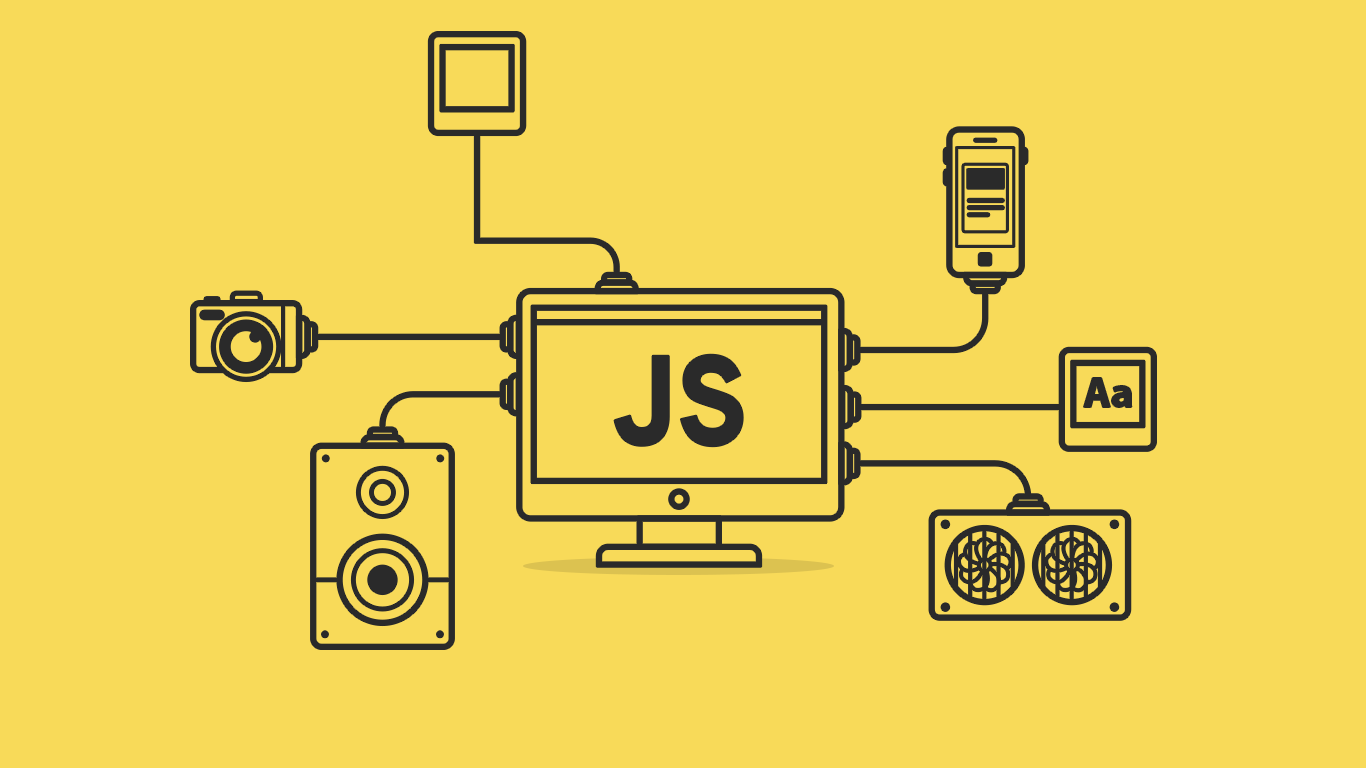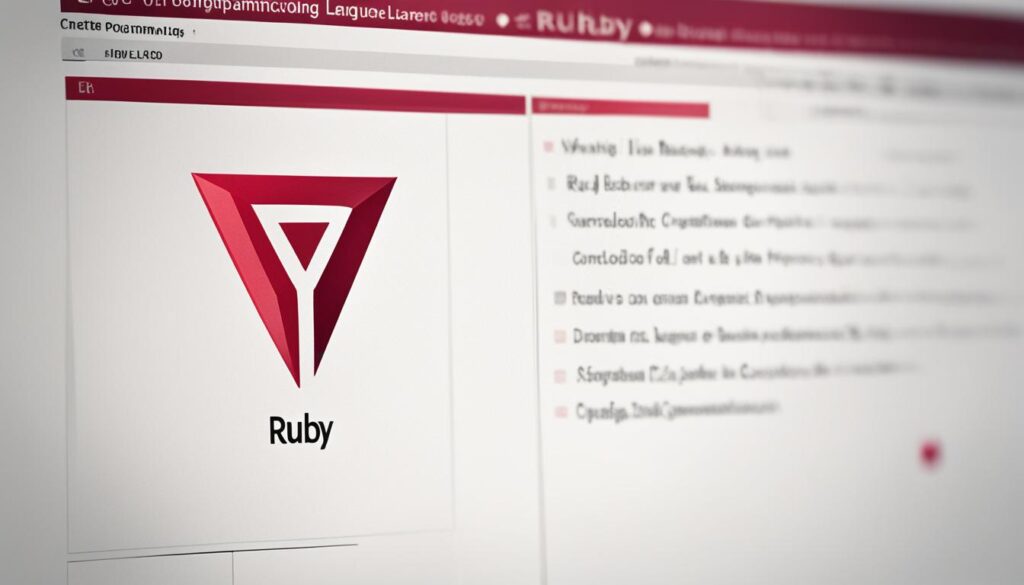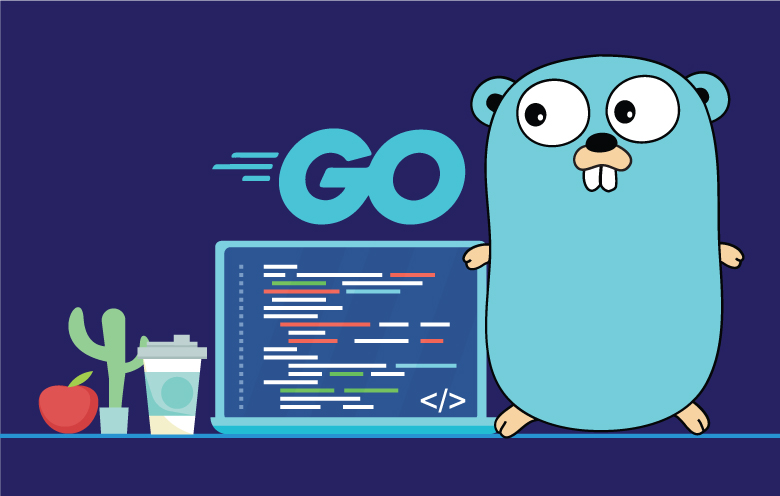JavaScript was created in 1995 and is key for web, app, and game making. It’s versatile and has many libraries and frameworks. Learning JavaScript opens doors in the tech world. After getting good at JavaScript, think about adding languages like Python, Java, PHP, C#, and others to your skills.
Each language has its own benefits and can make your JavaScript skills better. This lets you do more in development and find new job chances.

Key Takeaways
- JavaScript is a foundational programming language for web, application, and game development.
- Learning additional languages like Python, Java, PHP, and C# can expand your skillset and career opportunities.
- Each programming language has its own unique strengths and applications, allowing you to diversify your development expertise.
- Mastering complementary languages can enhance your understanding of JavaScript and its ecosystem.
- Evaluating the relevance of programming languages based on industry demands and earning potential is essential.
Why Learn Another Programming Language After JavaScript?
Learning a new programming language after JavaScript can open up many doors in the tech world. It makes you a more versatile and valuable developer. You can work on a variety of projects across different areas like web development, data analysis, and mobile app creation.
Expanding Your Skillset and Career Opportunities
Adding a second programming language to your skills can boost your job prospects in tech. Employers often look for developers who can handle different projects and adapt to various needs. Learning a new language shows you’re serious about growing in your career and expanding your skills.
Versatility in Different Development Areas
Every programming language has its own strengths and uses. For instance, Python is great for web development, data analysis, and artificial intelligence. PHP is a top choice for back-end web development. By learning a new language, you can broaden your skills and explore areas like front-end and back-end web development, mobile apps, games, and more.
Learning a new language can improve your problem-solving skills, make you more employable, and give you a wider view of programming. The effort you put into learning a second language can greatly benefit your career growth.
Python: A Versatile Language Beyond Web Development
After learning JavaScript, Python is a great next step. It’s not just for web development. It’s perfect for those wanting to grow their skills in many areas.
Ease of Learning and Readability
Python is easy and clear, great for new and seasoned developers alike. It uses simple syntax, so you can write less code. This lets you focus more on what your apps do.
Powerful for Data Analysis and Machine Learning
Python is a top choice for data analysis and machine learning. It has many libraries like NumPy, pandas, TensorFlow, and PyTorch. These tools help developers handle complex data tasks easily.
Automation and Scripting Capabilities
Python is great for automation and scripting. Its easy-to-read code makes it perfect for automating tasks. You can automate file management, system tasks, or data processing with Python.
Learning Python opens up many new opportunities. It’s easy to use, powerful for data and machine learning, and great for automation. Adding Python to your skills is a smart move.
PHP: Mastering Full-Stack Web Development
If you want to grow your skills beyond JavaScript, learning PHP is a great move. PHP is a powerful language for server-side scripting. It works well with JavaScript to create dynamic and interactive websites.
Complementing JavaScript for Back-end Development
Adding PHP to your skills lets you understand web development better. It helps you take on back-end tasks. This mix of front-end and back-end skills makes you a complete full-stack web developer.
Popular Frameworks and Libraries
PHP has many popular frameworks and libraries like Laravel and Symfony. These tools make building complex web apps easier. Learning them can make you more efficient and skilled as a full-stack developer.
| PHP Frameworks | PHP Libraries |
|---|---|
| Laravel | Composer |
| Symfony | PHPUnit |
| Codeigniter | Guzzle |
| Zend | Monolog |
Learning PHP opens up many opportunities in full-stack web development. It adds to your JavaScript skills and broadens your development abilities.
Java: Object-Oriented Programming and Cross-Platform Development
If you want to grow your programming skills, Java is a great choice. It’s an object-oriented programming language. This means it helps you learn important software engineering ideas like encapsulation, inheritance, and polymorphism. These skills make you a better developer.
Java is great for cross-platform development. It lets you make apps that work on different operating systems like Windows, macOS, and Linux. This is useful for many projects, from big software and mobile apps to server-side apps and games.
The 2023 Stack Overflow Developer Survey says Java is a top choice for professional developers. It’s widely used and important in the industry. With its strong ecosystem of frameworks, libraries, and tools, learning Java can lead to many opportunities in web development, data analysis, and cloud computing.
“Java’s cross-platform capabilities and object-oriented design make it a versatile and powerful language for a wide range of development projects.”
Looking to learn java, improve your object-oriented programming skills, or dive into cross-platform development? Java is a language you should think about as you grow your programming skills.
what programming language to learn after javascript
Learning a new programming language after mastering JavaScript can change the game. It broadens your skills and opens up job opportunities in tech across various industries. Think about the platform independence and scalability of the language. These qualities make you a valuable asset to any team.
Increasing Job Prospects in Various Industries
Adding a new programming language to your skills makes you more versatile and in demand. Companies want developers with diverse skills for a wide range of projects. When choosing what programming language to learn after javascript, pick ones that match your career goals and interests.
Platform Independence and Scalability
Languages like Java and C# are great for platform independence and scalability. They let your apps run on many platforms and handle big tasks easily. This makes you a go-to person for companies building big, adaptable apps.
“Learning a new programming language can open doors to exciting job opportunities and allow you to tackle a wider range of projects.”
Think about the languages that fit your career goals and offer platform independence and scalability. This way, you become a versatile and valuable tech professional.
jQuery: Enhancing DOM Manipulation and Browser Compatibility
Learning jQuery is a great step after you know JavaScript. It’s a JavaScript library that makes working with web pages easier. It helps with finding elements, handling events, and making animations.
Simplified Syntax and Plugin Ecosystem
With jQuery, you can improve how you work with web pages and make sure they work on all browsers. Its easy syntax and many plugins can make building web apps faster. This also helps you understand JavaScript better.
Deepening JavaScript Understanding
jQuery makes JavaScript easier to learn for beginners. But, knowing the basics of JavaScript is key. Learning both jQuery and JavaScript gives you a strong skill set. This lets you handle many web development tasks.
“jQuery simplifies DOM manipulation and browser compatibility issues, allowing developers to write fewer lines of code compared to plain JavaScript.”
Learning jQuery is a big plus for web developers. It boosts your skills in DOM manipulation, browser compatibility, and JavaScript understanding. Using this library can make your work more efficient and your web apps better for users.
Node.js: Full-Stack JavaScript Development
The world of web development is always changing. Node.js has become a key player in this changing landscape. It lets you run JavaScript code outside the web browser. By learning Node.js, you can write code for both the client and server sides in one language.
Building Real-Time and Scalable Applications
Node.js is great for making real-time apps. Whether it’s a chat app or a streaming service, Node.js makes it easy. Its event-driven model lets you create apps that are both fast and can grow big.
Leveraging Existing JavaScript Knowledge
If you know JavaScript already, moving to full-stack JavaScript is easy with Node.js. It uses JavaScript and lets you apply your skills to server-side work. This makes your development faster and more efficient.
“Node.js is used by nearly 98% of Fortune 500 companies, establishing its prominence in the professional sector.”
Learning Node.js opens up many opportunities. It’s in high demand for full-stack JavaScript developers. Mastering Node.js puts you at the top of web development. You’ll be ready for a variety of projects and can help create new, scalable applications.
TypeScript: Enhancing Developer Experience
Learning TypeScript can be a big plus for JavaScript developers. It’s a superset of JavaScript that makes coding better with static typing, tooling, and code organization.
Static Typing for JavaScript
TypeScript has a static type system. This means you can set and check types for variables, function parameters, and return values. This helps find errors early, making your code stronger and easier to keep up.
Improved Tooling and Code Organization
TypeScript also offers great tooling features. The TypeScript compiler (tsc) looks for type errors and makes sure your code works with web browsers. IDEs like Visual Studio Code support TypeScript well, with features like code completion, refactoring, and type-checking.
Also, TypeScript helps with code organization through interfaces, classes, and generics. These tools help developers make their code more modular and scalable, especially for big or complex projects.
By learning TypeScript, you can use your JavaScript skills in a more powerful way. This makes you a more efficient and productive developer, helping your projects succeed.
“TypeScript was rated as one of the top three most loved languages in a Stack Overflow survey at the end of 2019, ranking behind Python and Rust.”
Ruby: An Object-Oriented Language for Web Development
Learning Ruby as a web developer is a smart move after getting the hang of JavaScript. Ruby is easy to read and write because of its object-oriented design. This makes it easier to learn and boosts your work speed.
Ruby on Rails Framework
Ruby on Rails is a top choice for building web apps with Ruby. It makes creating complex apps simpler. With Ruby on Rails, you can quickly add features like user login, manage databases, and handle data operations. This means you can work faster and get projects done quicker.
Readability and Developer Productivity
Ruby’s code is clear and easy to read, which is great for developers. Its simple and expressive nature makes it easier for beginners. At the same time, it keeps code clear and easy to maintain for experts.
“Ruby is designed to be a fun and productive language to code in. It has a focus on simplicity and elegance, allowing developers to be more expressive and write less code to accomplish the same task.” – Yukihiro “Matz” Matsumoto, Creator of Ruby
Learning Ruby adds another powerful tool to your web development toolkit. It also introduces you to object-oriented programming. This can lead to more job opportunities and a broader set of programming skills.

C#: Building Windows and Web Applications
If you know JavaScript, learning C# can be a great next step. C# is a powerful language used for making Windows and web apps. It works well with the .NET Framework. Plus, it lets you make apps that work on different operating systems.
.NET Framework and Cross-Platform Development
C# is closely tied to the .NET Framework, made by Microsoft. This means C# developers have lots of tools and libraries for Windows apps. But with .NET Core, C# can do even more. Now, you can make apps for Windows, macOS, and Linux, making your C# skills more versatile.
Game Development with Unity
C# is also big in game development, especially with Unity. Learning C# opens doors in the exciting game world. You can make 2D and 3D games for Windows, macOS, mobiles, and VR systems.
Learning C# can lead to many career paths. It’s great for making tools, web apps, or games. Its flexibility, ability to work across platforms, and strong .NET connection make it a key skill.
Swift: iOS and macOS Development
If you’re into mobile app development, especially for Apple’s world, learning Swift is a smart move after getting the hang of JavaScript. Swift is Apple’s modern language. It’s safe, fast, and lets you express yourself well. This makes it perfect for making apps for iOS and macOS.
Apple’s Modern Programming Language
Apple made Swift to fix the issues with Objective-C, the old language for iOS and macOS apps. Swift has a clean syntax, safety features, and is very capable. It’s now the top choice for Apple’s platforms. Learning Swift lets you use Apple’s hardware and software fully, making apps that work great and run fast.
Opportunities in Mobile App Development
The need for skilled iOS development and macOS development pros is growing fast as the app market gets bigger. With iPhones, iPads, and Macs being so popular, the mobile app development field is booming. By getting good at Swift, you can join this booming industry. You can make apps that work great with Apple’s platforms.
“Swift combines low-level primitives from languages like C, C++, and Objective-C with object-oriented features such as classes, protocols, and generics.”
Swift is versatile and getting more popular, making it a great choice for expanding your programming skills. It opens doors to the exciting world of Apple’s ecosystem. Learning Swift can lead to many opportunities in the exciting field of mobile app development.
Go: A Statically Typed Language for Scalable Systems
If you’re a JavaScript developer looking to grow your skills, consider learning Go, also known as Golang. This language is perfect for building scalable and efficient systems. It’s great for tasks in concurrency and parallelism.
Concurrency and Parallelism
Go is ideal for cloud-based apps and distributed systems because of its focus on concurrency and parallelism. It supports goroutines and channels, making it easy to write code that uses many processors and cores. This means your applications can run faster and handle more tasks at once.
Cloud and Distributed Systems Development
Go is simple and efficient, making it great for big projects that need to handle many tasks at once. It compiles to standalone binaries, which is key for cloud and distributed systems. This makes deployment easy and ensures your code works on different platforms.
Learning Go can open up new areas for you, like cloud computing, network programming, and system-level programming. Its focus on making developers’ lives easier and its growing library of tools makes it a smart choice for your skills.

“Go is designed for speed, efficiency, scalability, and simplicity, making it a powerful tool for building scalable systems and high-performance applications.”
Conclusion
After learning JavaScript, there are many programming languages you can explore. Each one has its own strengths. They can help you grow your skills, open more career doors, and dive into new areas of development.
Python is great for data analysis, PHP for web development, Java for big projects, and Swift for making mobile apps. Learning these languages can open up many possibilities for you.
Think about what you’re interested in and what you want to achieve. Choose a language that fits well with what you already know about JavaScript. This choice should match your goals, personal interests, and the needs of the projects or industries you’re interested in.
As you keep learning, remember that the skills you’ve learned from JavaScript will help you with other languages. With hard work and a willingness to learn, you can easily move to new languages. This will broaden your skills and open up more opportunities in the tech world.
FAQ
What programming language should I learn after JavaScript?
After getting good at JavaScript, think about learning languages like Python, Java, PHP, C#, and more. Each one has its own perks and can add to your JavaScript skills.
Why should I learn another programming language after JavaScript?
Learning a new language after JavaScript broadens your skills and opens up more job chances. It lets you dive into web development, data analysis, mobile apps, and more. Plus, it deepens your programming knowledge, making you more flexible and adaptable.
Why is Python a great choice after JavaScript?
Python is easy to learn and read, perfect for those moving from JavaScript. It’s strong in data analysis and machine learning, and great for automation and scripting too.
How can learning PHP complement my JavaScript skills?
PHP is for server-side scripting and works well with JavaScript for dynamic websites. Learning it lets you do back-end development, making you a full-stack developer.
What benefits does learning Java offer after JavaScript?
Java teaches you about software engineering and is used for many things like Android apps and server applications. It’s a key skill to have in your toolkit.
How can learning a new programming language after JavaScript increase my job prospects?
Companies want developers who can handle different projects. Learning a new language makes you more versatile and valuable. Languages like Java and C# are great for building apps that work on many platforms and handle big tasks.
How can learning jQuery enhance my JavaScript skills?
JQuery makes working with web pages easier by simplifying tasks like moving elements and animations. It helps make your web pages more interactive and works well across browsers.
How can learning Node.js make me a full-stack JavaScript developer?
Node.js lets you run JavaScript on servers, so you can work on both the client and server sides. This makes building web apps easier, especially those needing real-time or large-scale functionality.
What benefits does learning TypeScript offer after JavaScript?
TypeScript is a version of JavaScript with static typing, which helps find errors early and improves code structure. It uses your JavaScript skills but offers better tools and support.
How can learning Ruby complement my JavaScript skills?
Ruby is easy to read and write, making it great for web development. Ruby on Rails is a framework that makes building complex web apps simpler.
What opportunities can learning C# provide after JavaScript?
C# is for building Windows and web apps with the .NET Framework. It’s also good for game development, especially with Unity.
Why should I learn Swift after JavaScript?
If you like making mobile apps for Apple devices, Swift is a good choice. It’s designed for safety, speed, and ease, perfect for iOS and macOS apps.
How can learning Go (Golang) complement my JavaScript skills?
Go is for building large, efficient systems that handle many tasks at once. It’s great for projects needing strong concurrency and parallel processing, adding to your JavaScript skills.


